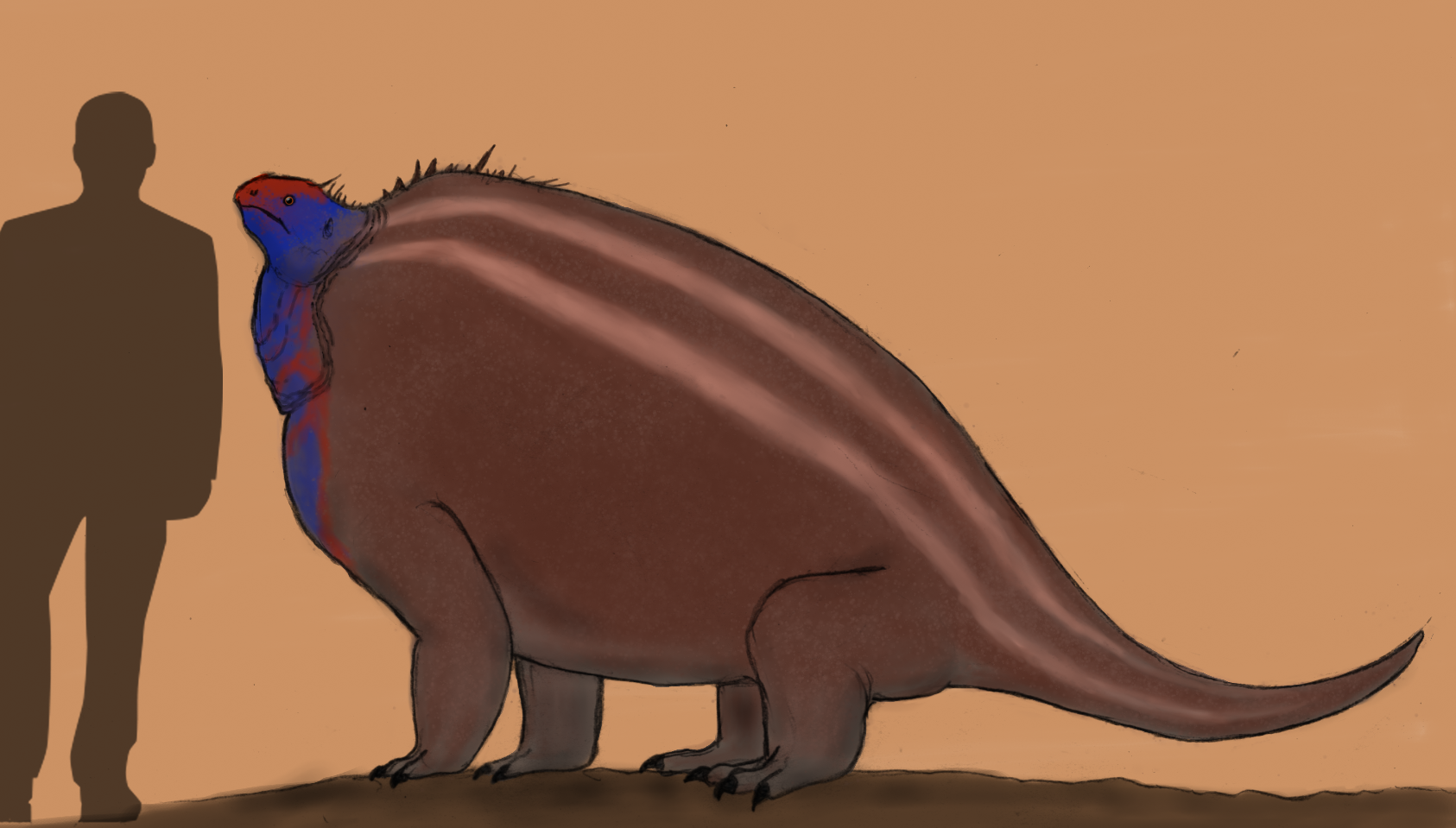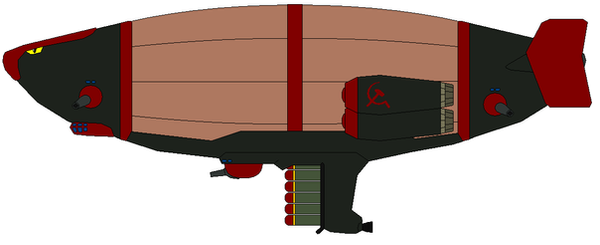HOME | DD
 Dragonthunders — TFiF: Acmicephale
Dragonthunders — TFiF: Acmicephale

Published: 2016-09-29 17:36:21 +0000 UTC; Views: 16430; Favourites: 163; Downloads: 22
Redirect to original
Description
The huge and weird Acmicephale (Acmicephalus engyencephala), is one of the aberrant great herbivores, a forest dwellers of South America during the period Haemonova (166 M.Y.). It is a distant descendants of the iguanas, which up during this period, began to diversify with the disappearance of much of competition after the great mass extinction of the Cenozoic. its lineage is quite unusual in that it consists of long herbivores of short tails and semi-erect limbs, some with long necks and other for being aquatic.This reptile stands among its relatives by the strange proportions of the head in relation to its body, as this represents only 1/15 of its total length. It measures approximately 3 meters long, and weighs about 500 kg. Because of its metabolism and lifestyle, which is comparable to the giant tortoise, it is one of the long-lived creatures coming to live to 180 years. The skin is quite thick, and their meat is very toxic thanks to the components from the plants that eats. Despite appearances, it possess a long neck which keeps it inside of the chest like a turtle. Both genders have an interesting variety of coloration in the chest, the females are blue and orange, while males are more reddish color with white circles. At the time of fighting, this uses its burly and reinforced chest, with a huge pressure force. Normally the fights of this species is only in a few clashes, in which one of the two individuals pushes the other until one desists. In the case of predators, this is capable of reaching in short distances up to 20 kilometers per hour, rising to hit the attacker and cause enormous damage.
This species breed in any moment of the year; the small male are mounted on one side of the female, being coupled so that he can fertilize her. The female spawns about 25-30 eggs in a mound which then buries, taking in about 60 days to incubate.
Related content
Comments: 39

👍: 1 ⏩: 0

👍: 1 ⏩: 0

👍: 1 ⏩: 1

How much? Do they fill different ecological niches?
👍: 0 ⏩: 1

Is not really huge the difference, is just slightly small.
no, they have the same ecologicla niche.
👍: 0 ⏩: 0

oh, i had a similar idea.
it was a time were iguanas were moved to colder places, and became weasel-like animals that score thick "fur", but were still reptiles. they could live from 8,000 ft to 25,000 above seal level. they fed on another made up animal, which were a species of midge-like inscects that fed on small (but rare) plants.
👍: 0 ⏩: 1

Interesting idea specially about the evolution of fur-like tegument.
👍: 0 ⏩: 0

That's a rather odd looking creature. It looks like its incredibly fat but I'm guessing a lot of that bulk may be muscle or something.
👍: 0 ⏩: 1

Hehehehe I recognize a certain sort of strange reptile 
👍: 0 ⏩: 1

I see you put a bit of extra neck skin. Good job.
👍: 0 ⏩: 1

This was one of evolution's stranger experiments, I would say; it reminds me bit of the casea and its' relatives. Thanks for sharing.
👍: 0 ⏩: 1




































